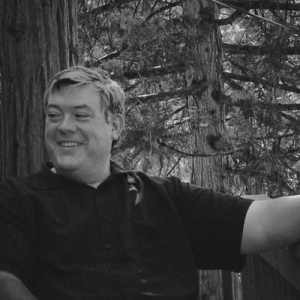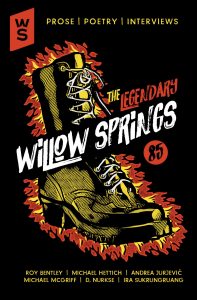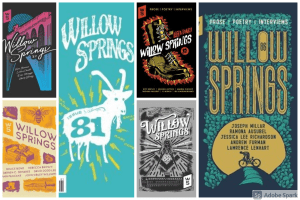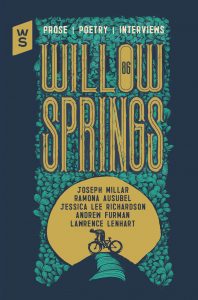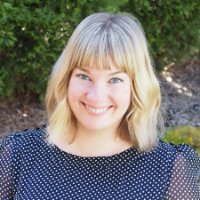
About Melissa Leavitt
Melissa Leavitt lives in the San Francisco Bay Area, where she works for a children’s healthcare nonprofit. She received her M.F.A. in Creative Writing from the University of Montana, and her Ph.D. in English from Stanford University. In the summer of 2011, she was a resident fellow at the Virginia Center for the Creative Arts. Her writing has been honored by the American Literary Review and the Baltimore Review, and her essay “Build the Story Backward” appears in the Spring 2010 issue of New Delta Review. She is currently working on a collection of essays.
A Profile of the Author
Notes on “Show Off”
I was about seven or eight years old, I spent a lot of Saturday mornings watching Nadia, a made-for-TV movie about the Romanian gymnast Nadia Comaneci. The opening scene depicts Nadia cartwheeling in her schoolyard. Actually, it depicts Bela Karolyi, Nadia’s future coach, watching her cartwheel, spying on her through the bars of her schoolyard gate. This is the moment Nadia is discovered, the moment she becomes a star. I mention this moment in “Show Off” as one of many discoveries that fascinated and terrified me as a child—the story of an ordinary girl plucked from obscurity by someone who just happens to see her. These girls could be catapulted to fame and fortune, or they could disappear forever. “Show Off” explores the possibility that stories of disappearance—in this case, kidnapping—are just another version of the discovery narrative that I used to find so compelling.
“Show Off” comes from a collection of essays (still in the works) about missing girls, in which each essay tells the story of a different disappearance. In the process of writing these essays, I’ve begun to reflect on all the different ways a girl can be lost, and all the different ways to put a lost girl in her place. Every missing girl becomes a taunt, of the I-know-something-you-don’t-know variety. We don’t just want to find missing girls; we want to know what they know. The challenge in exploring this idea is not falling into the trap of glamorizing the trauma of disappearance, and trivializing these true-life stories. After explaining the idea for this collection to a fellow writer, I was asked whether there was anything in the idea of being missing that I found appealing. “Of course not,” I answered. But what “missing” really means to me, I think, is that someone out there is looking for you. And I’d be lying if I said there wasn’t anything appealing about that.
Notes on Reading
“A woman must continually watch herself. She is almost continually accompanied by her own image of herself.” I sometimes think that all of my essays respond, in some way, to this quotation from John Berger, which I came across when I read Ways of Seeing as a college freshman. Since most of my writing has an autobiographical element, I feel I’m constantly engaged in watching myself—and that these acts of scrutiny and self-scrutiny are attempts to “see” some phase of my experience within the big picture of history or memory. Every time I reread Ways of Seeing, I’m gratified to realize, yet again, that the difference between the image of myself I carry around in my head, and the self that actually walks around in the world, will give me enough subject matter to last a good long while.
Plenty of people tell me that Berger’s ideas are too outdated to be of much interest, let alone use, and maybe they’re right. But since I like outdated things, I’ll also say that The Education of Henry Adams by Henry Adams has been another huge influence on my work. Adams’s book is one of the few memoirs I’ve read that unabashedly embraces its own arrogance. The book is a struggle to figure out whether one individual has any significance in the vast sweep of history, and Adams really, really hopes that he does. I think most memoirs struggle with the same question, but pretend it’s already resolved—as if the act of writing a memoir affirms an individual’s importance. I find it oddly reassuring that Adams remains pretty freaked out by the question throughout the entire very long, very dense book. And while I don’t think I’ll ever adopt his technique of writing about himself in the third person, I like the way it forces him to get lost in the shuffle of the world around him.

